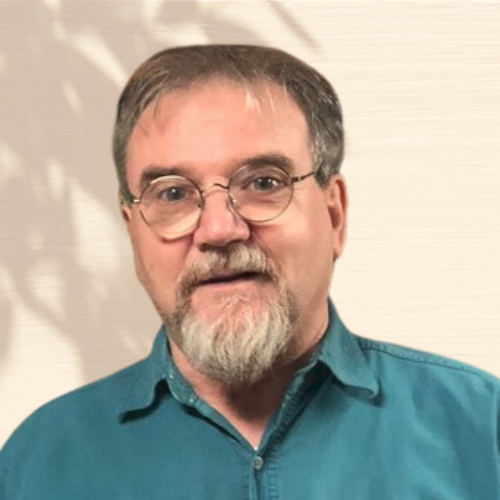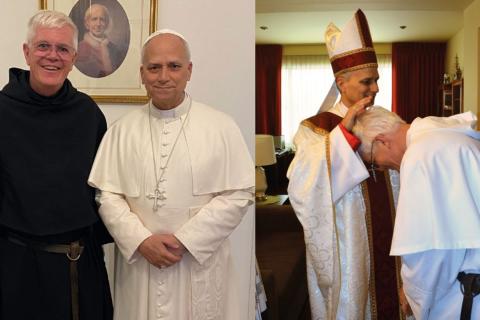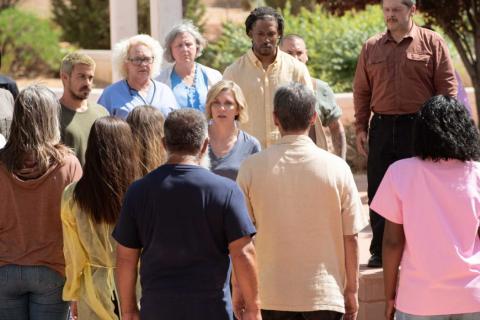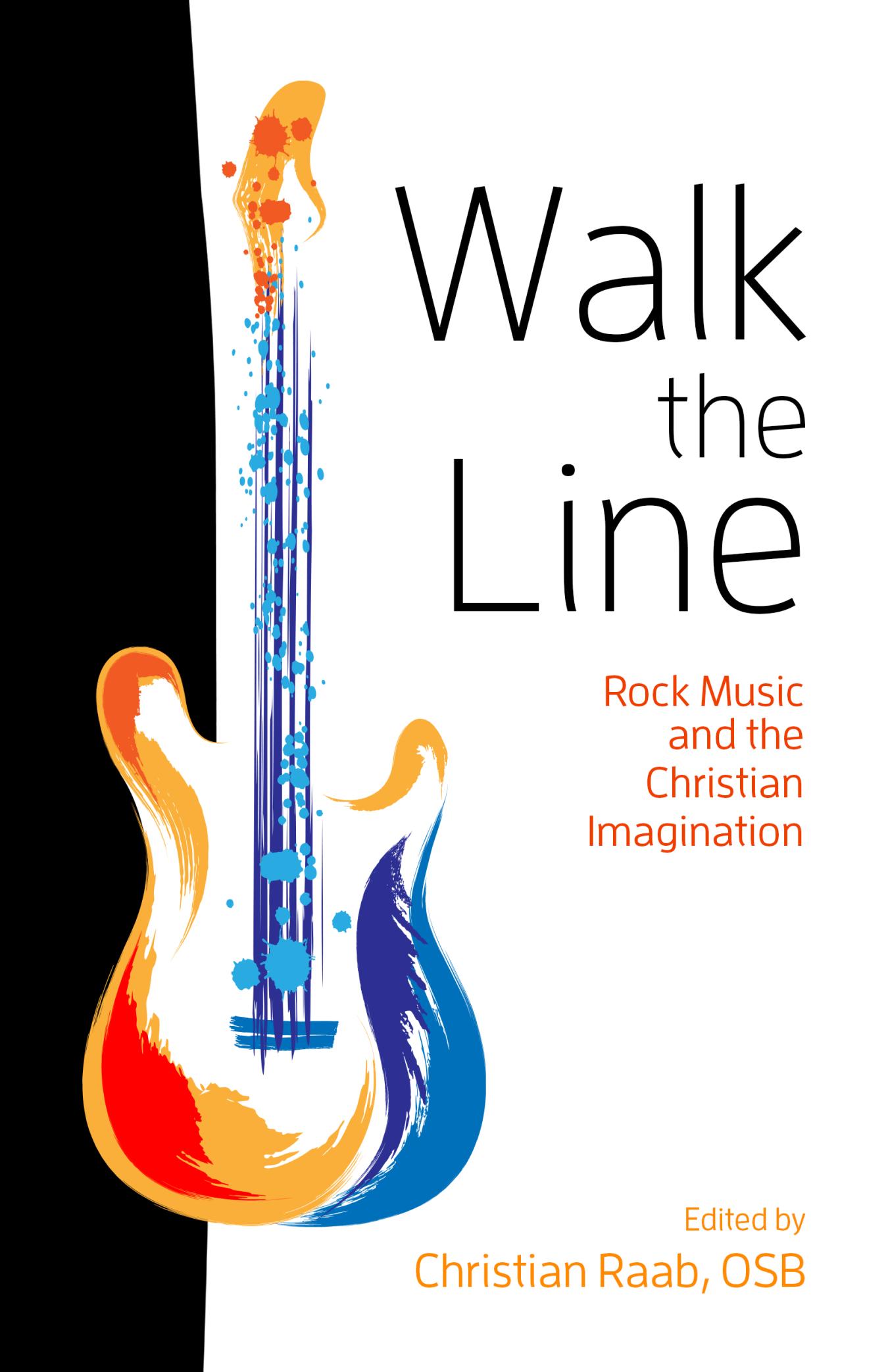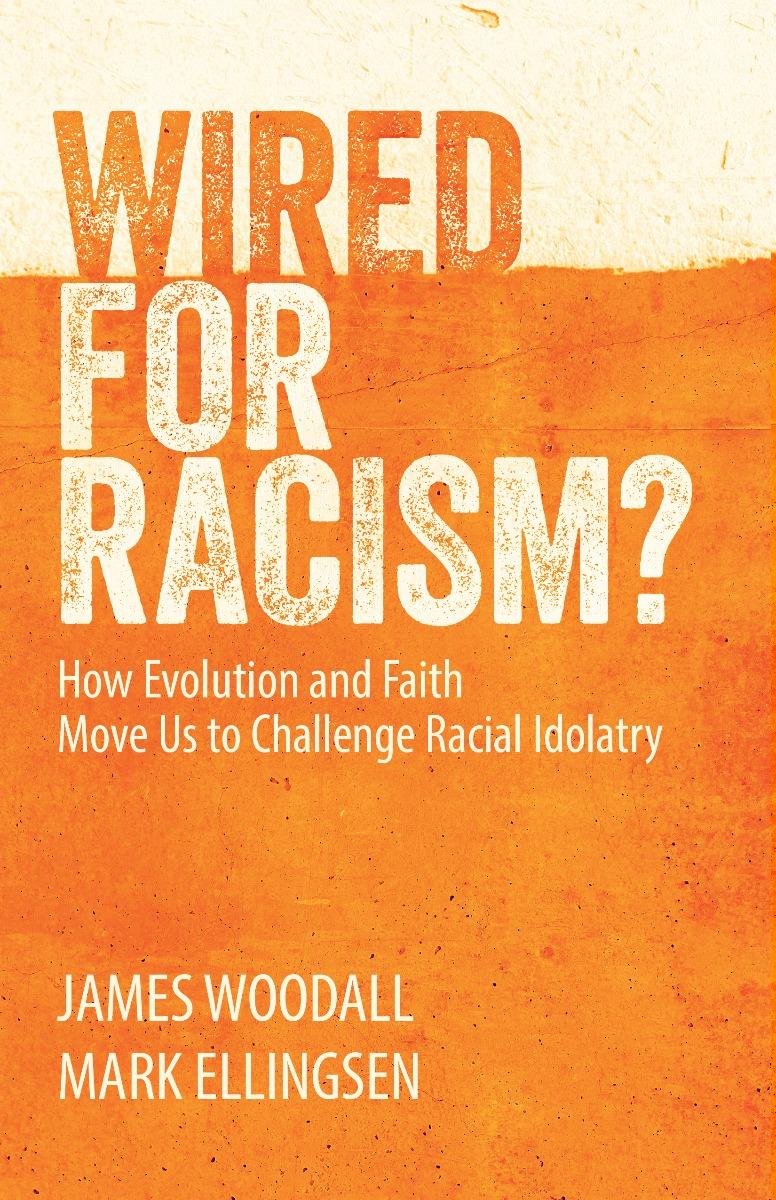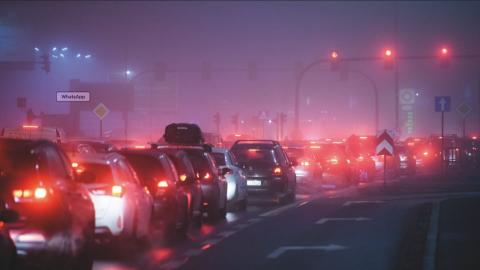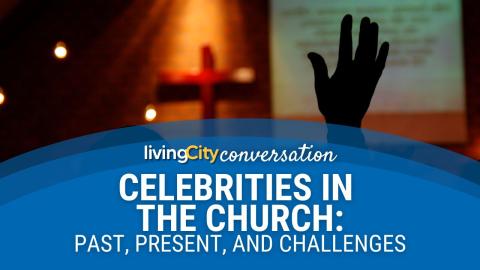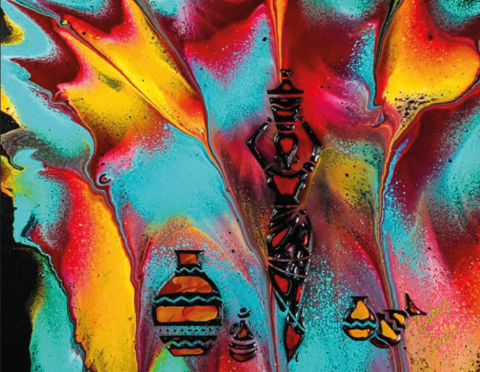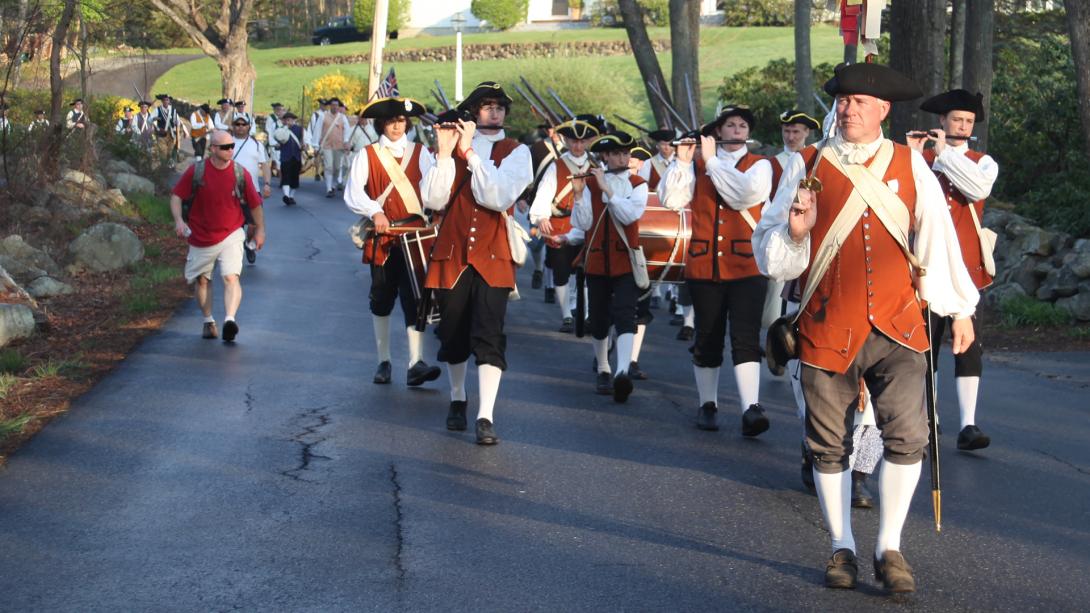
© Photo by Jrcovert | wikipedia.org
I am writing these opening words on Patriot’s Day, a holiday in Massachusetts when runners worldwide come to the city of the “Freedom Trail” to participate in the Boston Marathon. The holiday commemorates the first skirmishes in greater Boston in the late
eighteenth-century war with England. Pitted against each other were ragtag farmer soldiers decidedly taking on the Redcoats at Lexington, Concord, and Menotomy, now Arlington. The war was a risky and costly bid for freedom from British colonialism. “No taxation without representation!”
As a youngster in the early-mid 1960s, several of my young companions and I played fifes and drums in the Captain James Buxton Corps, founded and led by Benny Emerick, a police officer in Uxbridge who married one of the Revolutionary War captain’s descendants. Benny was passionate about the martial music of the American Revolutionary and Civil War periods. He was also devoted to keeping potentially wayward local youth off the streets, as altruistic forebears in a band-supporting fire department had done for him when he was a young ruffian. But it was more than the music that Benny taught us to share at events from nearby Old Sturbridge Village to Colonial Williamsburg in Virginia and many other historic sites. Benny imparted a sense of patriotic fervor, love of country, and dogged adherence to its ideals.
One Patriot’s Day, my bandmates and I marched fifteen miles through woods, meadows, and above streams on pontoon bridges from Sudbury to Concord. We donned our three-cornered hats, uniforms, and instruments as we left Longfellow’s Wayside Inn, where we had spent the night for a 5am departure on foot for the distant battlefields. We provided the drum roll and an occasional tune such as “Yankee Doodle” or “The Road to Boston” for the musket-carrying men who were devoted local reenactors of Minutemen heading into fateful battles on the Lexington Green and the Concord Bridge. I was fortunate to have one of the smaller period-like rope drums, but the march was a marathon for us young trudgers, a veritable test of our youthful grit and resilience.
Some of my childhood companions in the band enlisted in the army as adults, joining the Washington, DC-based “Old Guard” as fifers and drummers engaged in official ceremonial capacities in the capital. But I took the road less traveled and went off to seminary, hoping to become a La Salette missionary priest for the people of the Philippines. The La Salette Fathers and Brothers, a Catholic religious order committed to reconciliation, purchased a former Shaker Village in Enfield, New Hampshire in 1928. The Shakers named their village “The Chosen Vale”—a lovely, verdant valley on the shores of the beautiful Lake Mascoma, a clear “blue eye looking up,” as Ralph Waldo Emerson might put it, nestled in the foothills of the White Mountains. Beauty, order, worship, agriculture, simplicity, pacifism, hymnody, and equality of men and women and races constituted the spiritual architecture and legacy that the Shakers bequeathed to the La Salettes. It was another type of patriotism, a willed fidelity to faith in the power of nonviolence and of the spiritual community to change the world. I attended the seminary from 1966 to 1970 when the Indochina war raged.
This young patriot’s inherited notions of patriotism were soon challenged and refined. A former seminarian, Roland Laramee, wrote to me as I was editor of the school paper. He shared a narrative supporting draft resistance to the war in Vietnam and a suggested reading list that included the writings of Catholic peacemakers. At the same time, a Quaker with a young family arrived to teach history at our preparatory seminary. Bob Girvan brought a critical lens to the underside of world history that gently challenged my parochial views regarding Vietnam, eventually leading me to question conventional American perspectives on war and peace. Then came the witness of a slightly older fellow seminarian, now a Franciscan priest, echoing some early Church fathers: “I am a Christian. I cannot kill anyone.” I found him faith-filled and good! These challenges effected no loss to the spirit or motives of my earlier patriotism. They represented a gain of new insight as to the roots of such fervor, the seeing of things from the vantage of the poor, the peasantry, the oppressed and colonized. In retrospect, these faith challenges also represented a return to the best insights of the fomenters of the American Revolution who desired a new nation birthed in liberty and democracy.
We can begin to educate ourselves about the Indigenous who lived and still live in our regions. We might learn their wisdom as loving caretakers of the Earth as they taught, “The frog does not drink up the pond in which he lives.”
New vocational bearings came into the purview as I began to grasp more readily that our republic, born in the spilled blood of patriots in the act of brave decolonization from Britain, had become what it once loathed via its own neocolonial ambitions in Southeast Asia. A decade later, I would be back at Concord Bridge on the 200th anniversary of the battle, but this time as a young Catholic Worker partial to the plight of America’s poor. In the wake of Richard Nixon’s resignation from the presidency following the Watergate break-in and scandal, countercultural youths and “Vietnam Veterans Against the War,” I among them, set up an encampment of our own.
We were desirous of renewing the patriots’ dream of a just, fair land, free of the influences that former general and President Dwight D. Eisenhower warned were threats to our democracy. In his farewell speech from the presidency, Eisenhower relayed, “In the councils of government, we must guard against the acquisition of unwarranted influence, whether sought or unsought, by the military-industrial complex. The potential for the disastrous rise of misplaced power exists and will persist.” Folk heroes such as Arlo Guthrie sang of a new patriotism at the Concord Bridge that would have us take on corporate greed and war in a new American Aeon.
Years later I was captivated, as a confirmed pacifist, as I watched John Adams, a 2008 made-for-TV miniseries based on the book by American historian David McCollough. The film is a masterpiece of visual storytelling and details the sad violence that attended the bid for independence and the precariousness and fragility of the young republic. Some of the founding fathers were also slaveholders. It is another part of the historical record that calls for recognition, however painful, and for conversion of heart. I recall being struck by another film, Amistad, that featured the abolition-supporting John Quincy Adams. Finally, I read The Education of Henry Adams, an insightful text about the political soul of the nation being increasingly divorced from a vivifying spiritual and intellectual center. Like the Shakers, these Adams modeled a sense of civic virtue and moral responsibility as gifted and sensitive European-rooted Americans. They deserve our attention.
So here we are in July when the United States and Canada celebrate their founding from the lens of the European settlement. Citizens of both nations hear a call to patriotic fervor, pride, and celebration. On the 4th of July in the U.S., there are fireworks, concerts, parades, and cookouts, in celebration. July 1st is Canada Day, a similar declarative celebration of national identity and pride. Yet those of us who are children of Europe are learning, even if ever so slowly, that these lands were already home to Indigenous peoples whose rootedness, presence, and cultural life were rightfully celebrated long before us. It is a recognition that accords with the Christian faith, whose aim in the ideal is to honor the Creator, all the nations of the Earth, and all creation. We know now of the social sins of genocide and slavery at the root of the American republic, sadly often aided and abetted by ecclesial institutions that abused the Indigenous. Africans were kidnapped from their homeland and brought to these distant shores to be sold as exploited labor. How can we respond to this recognition and remedy a past needing such?
We can begin to educate ourselves about the Indigenous who lived and still live in our regions. We might learn their wisdom as loving caretakers of the Earth as they taught, “The frog does not drink up the pond in which he lives.” We might join Native-led campaigns for clean water and forested land. We could listen to the morally haunting and still very relevant oratory of Frederick Douglass in his “What to the Slave Is the Fourth of July?” One powerful way of doing so is to listen on YouTube to “Descendants Read Frederick Douglass’ Speech.”
We might look to those who proposed and lived other forms of expressing a love of the land and fidelity to its essential principles like the Quakers did and still do. Quaker Edward Hick’s famous painting “The Peaceable Kingdom”—based on the vision of the prophet Isaiah—hangs in the Worcester Art Museum. Why not come to see it? We might celebrate the art and ministries of American patriots of this other ilk like Adin Ballou, Mark Twain, Jane Addams, Dorothy Day, Katherine Drexel, Howard Thurman, William Stringfellow, Daniel and Philip Berrigan, Rabbi Abraham Joshua Heschel, Cesar Chavez and Dolores Huerta, and Thomas Merton. We might read Merton’s “Ishi Means Man” essay to relearn that persons and places are sacred. I think also of Bob Dylan’s song, “Everybody Must Get Stoned.” Perhaps the lyrics have many an entendre, but I like to think of him inviting us into the reality of being vicariously stoned as Stephen, the early disciple of Jesus and first martyr; was that the lesson to be learned? It is, when we all know what it is like to be the victim, then we will know what it is we need to do.
“This Land is Your Land, This Land My Land,” as Woody Guthrie reminds us. That is something to celebrate eagerly and well!


